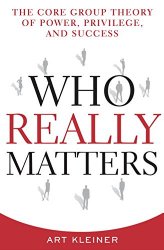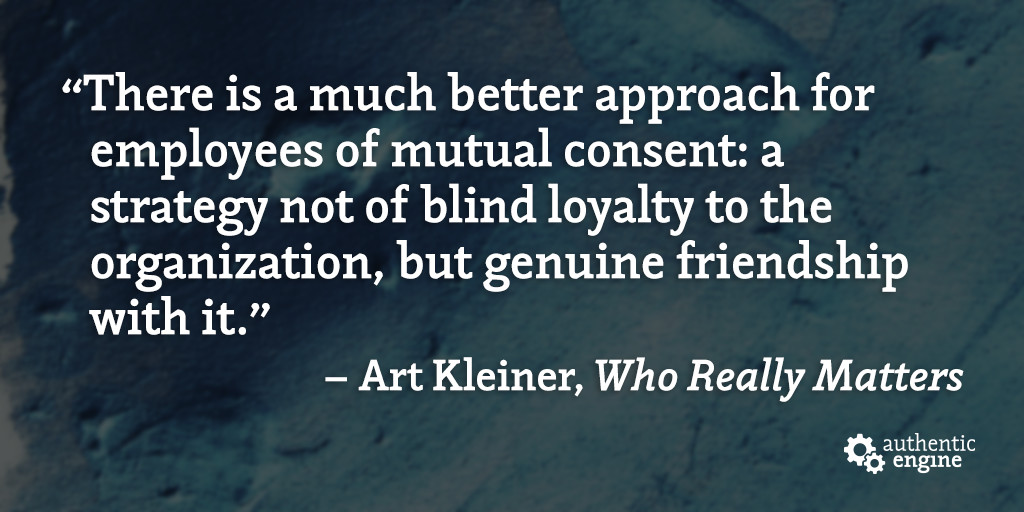 Who Really Matters (Amazon, Goodreads, Powells) puts forth the theory that central to every organization is a Core Group of people who really matter.
Who Really Matters (Amazon, Goodreads, Powells) puts forth the theory that central to every organization is a Core Group of people who really matter.
This post is part of a series summarizing the book and covers Chapter 6: Employees of Mutual Consent. You may want to start with the introduction.
Chapter 6: Employees of Mutual Consent
This chapter explores how to make the most of being an “employee of mutual consent,” that is someone not a member of the Core Group.
The first step is to recognize non-Core Group status for what it is. The organization will not act on your behalf unless it absolutely has to. It’s likely the organization doesn’t even see you as an individual, rather a sum total of your contributions and your demands.
However, that doesn’t mean that there is no value to being part of an organization when you are not a member of the Core Group. “Organizations are natural amplifiers of human capability” (p.57) and you don’t have to be a Core Group member to take advantage of this. You can leverage the access, tools, and other assets of the organization to practice your craft and build your career:
Organizations are often eager, once you show you are capable of taking some of the resources out for a spin, to let you see what you can do with them.” (p. 57)
The way to take full advantage of being an employee of mutual consent is to be aware of your status, how your organization works, and then make mindful choices:
Your challenge is not to protest against the Core Group’s existence, but to become more conscious of the dynamics of your particular organization, until you can see more clearly the choice you have: to find a route into the Core Group yourself (if that’s possible and it fits your own temperament); to leave for a different organization in which you feel more fulfilled; to start an organization of your own (and thus create your own Core Group); or to build an effective career as a transactional employee, taking advantage of the myriad ways in which working for an organization can improve your life and work.” (p. 57)
Kleiner stresses that this can be much easier to accept intellectually than emotionally, “especially if you’re the kind of person who wants to invest yourself wholeheartedly in anything you do and be rewarded commensurate with that investment.” (p. 57)
Furthermore, “being an employee of mutual consent requires some toughness that a Core Group member doesn’t need” (p. 58) because your desires and wants are generally not taken into account.
The key to success as an employee of mutual consent is to cultivate a genuine friendship with your organization:
There is a much better approach for employees of mutual consent: a strategy not of blind loyalty to the organization, but genuine friendship with it. Like all friendships, this is a stance of mutual admiration, respect, enjoyment of each others’ presence, and a modicum of care for each others’ welfare” (p. 62)
What’s Next?
Stay tuned for our next post in this series, a summary of Chapter 7: A Core Group Way of Knowledge, which explores the idea that all great Core Groups (which an organization must have in order to be great) have a common function: they hold an essential form of knowledge.
Citations
Kleiner, Art. Who Really Matters: The Core Group Theory of Power, Privilege, and Success. 1st ed. New York: Currency/Doubleday, 2003.
This post is part of our Book Summary series in which we share summaries of books about leadership, governance, and community building. To discuss the book, leave a comment below or join our Goodreads group.


0 Comments